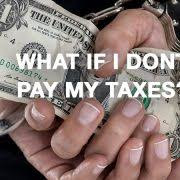The Internal Revenue Service announced on February 15, 2022 that Form 14457, Voluntary Disclosure Practice Preclearance Request and Application, has been revised, including expanding a section on reporting virtual currency.
Form 14457 permits taxpayers who may face criminal prosecution for willful violation of tax law to voluntarily disclose information to the IRS that they failed to previously disclose.
Updates and additions to this form include:
- IRS Criminal Investigation now accepts photocopies, facsimiles and scans of taxpayer signatures. Taxpayers can send this form via eFax to 844-253-5613 to reduce mailing and processing times. Previously, Part II of this form had to be mailed.
- An expanded section for reporting virtual currency.
- A penalty structure for employment tax and estate and gift issues.
- A check-box for inability to pay in full.
The updates reflect input from practitioners and stakeholders and take into account trends in the type of financial asset that taxpayers hold.
“This is an important form and process for people who recognize it’s better to step forward and address their tax situations head-on, before facing IRS enforcement action,” said Doug O'Donnell, Deputy Commissioner Services and Enforcement. “The revised form includes a number of updates, and we encourage people to review the guidelines and consult a trusted tax professional.”
Thousands of taxpayers have used the Voluntary Disclosure Practice since its inception. It serves as a compliance option for taxpayers who have potential criminal exposure and wish to come into compliance with the tax laws. Those making such disclosure are still subject to civil examination and the payment of all applicable taxes, interest and penalties.
Taxpayers who did not commit any tax or tax-related crimes and wish to correct mistakes or file delinquent returns should consider other options available to comply with their tax and reporting obligations. The IRS encourages taxpayers to consult with professional tax or legal advisors in determining which option is the most appropriate.
A taxpayer’s voluntary disclosure must be timely, accurate and complete. The taxpayer must also cooperate with the IRS in determining the correct tax liability, and make full payment of the tax, interest and any applicable penalties.
Cooperation includes full payment of all tax, interest and penalties. A taxpayer who is unable to make full payment may request that the IRS consider other payment arrangements. If a taxpayer anticipates they cannot pay the total amount of tax, interest and penalties required, they must disclose this and submit a proposed payment arrangement and a completed, and executed, Collection Information Statement (Form 433-A). The burden is on the taxpayer to establish inability to pay, to the satisfaction of the IRS, based on full disclosure of all assets and income, domestic and foreign, under the taxpayer’s control.
Failed To File or Pay Your Taxes?
Read more at: Tax Times blog










